- The Operator's AI Playbook
- Posts
- How To Build Self-Running Systems With Notion And Gumloop
How To Build Self-Running Systems With Notion And Gumloop
Everyone talks about automation like it's this complex, enterprise-level thing that requires a team of developers.
I want to change that for small businesses. You shouldn't need a technical team to save time and systematize your operations.
Here's how you can do it with Claude + Notion + Gumloop as your organizational backbone.
This article is just the start. Over the coming months, I'll be using this exact stack to organize my business and my clients' businesses, documenting what works and what doesn't along the way.
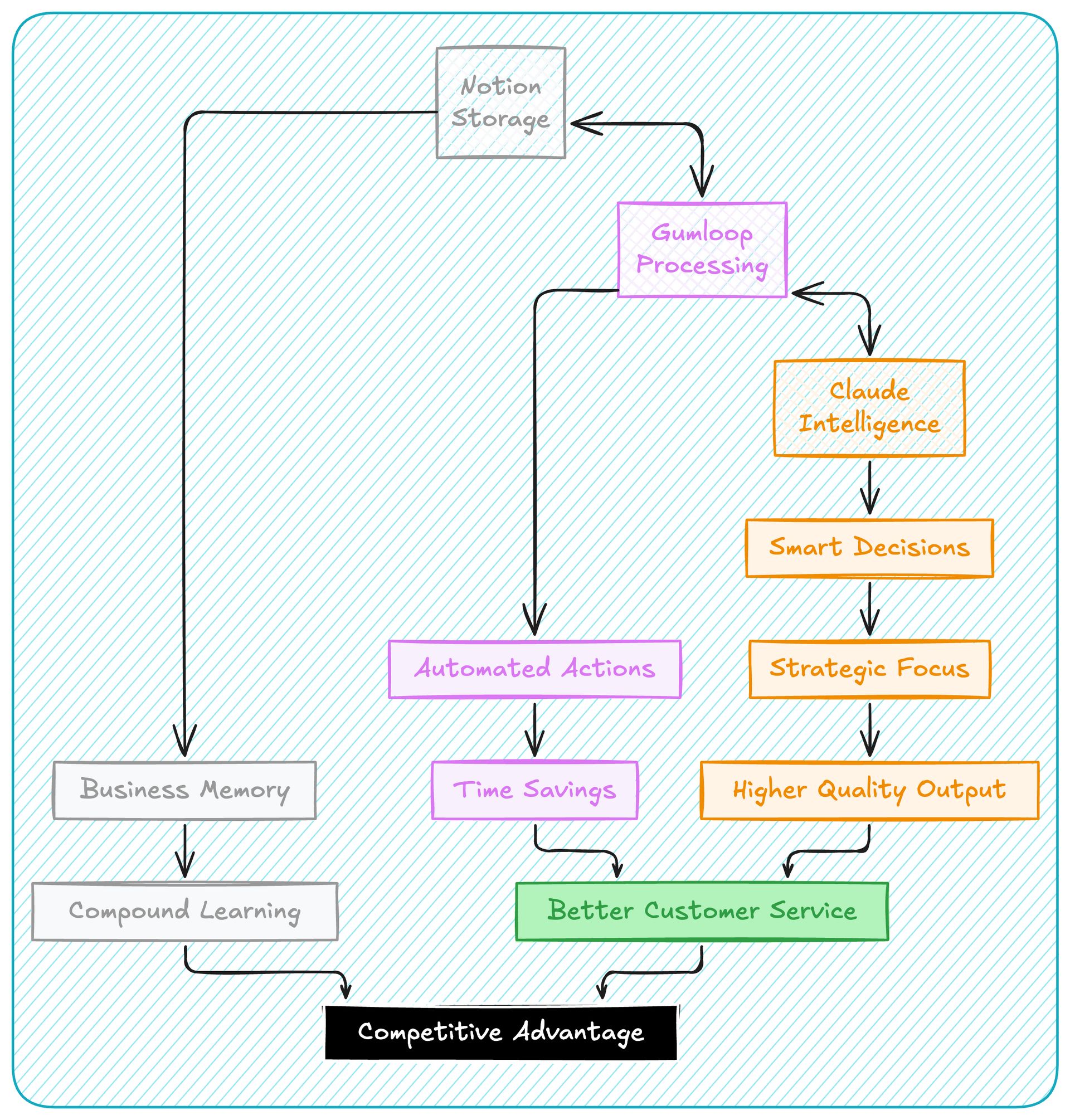
The accidental automation stack
I stumbled into this setup completely by accident. I was drowning in customer emails, manually copying data between systems, and spending three hours a week just trying to remember what I'd promised to whom.
Is this you?
Then I started connecting Claude (for thinking) to Notion (for storing) to Gumloop (for doing). That's it. Three tools that talk to each other.
Let me show you what's possible.
Why Notion becomes your business brain
Most people use Notion like a fancy note-taking app. But when you connect it to automation tools, it becomes something much more powerful: a living database that gets smarter as your business grows.
Here's the thing about automation, it's only as good as the information it can reference. If you're asking an AI to draft customer emails but it has no context about your previous conversations, you get generic responses that sound like they came from a call center.
But when everything lives in Notion, your customer database, your standard replies, your project templates, your competitor research, suddenly your automations have access to your entire business memory.
I keep databases for:
Customer interactions and preferences
Standard email responses (categorized by situation)
Project workflows and templates
Market research and competitor analysis
Lead information and follow-up sequences
The more you store in Notion, the smarter your automations become.
Even better, you can automate the storage.
It's like giving your future self a perfect memory of every business decision you've ever made.
I’m still working through this all, as I’m transitioning from one business to the next, but my eyes have been opened. There is so much value here for any business and my business be to spread this value.
The customer support system every small business could use
Here's a specific example that'll make this real for you.
My friend owns a mat delivery business. He said he is spending 2 hours every day just responding to customer emails. He owns a business doing almost a million in revenue but he feels like a customer service rep. Same questions, slightly different contexts, but each one requiring him to craft a thoughtful response from scratch.
I’m building him a Gumloop flow that reads his incoming emails, references his Notion database of standard responses, and prepares drafts based on the specific context of each inquiry. He reviews them in batches, makes adjustments, and sends.
This is the key insight: automation shouldn't replace your judgment, it should eliminate the busy work so you can focus on the decisions that actually matter.
I hope for his routine to turn into: three hours of deep work, then 15 minutes reviewing and adjusting the AI-drafted responses.
Send.
Back to deep work.
But the real magic happens next. I added a flow that extracts key information from his sent emails and adds it to his Notion knowledge base. Now the system "learns" from every interaction, making future responses more accurate and personalized.
The emails still sound like him because they're based on responses he’s actually sent before. But he’s not starting from a blank page every time someone asks about pricing or project timelines.
I will obviously utilize this for my business as well. Best part about building automations for other businesses it that they can help me as well.
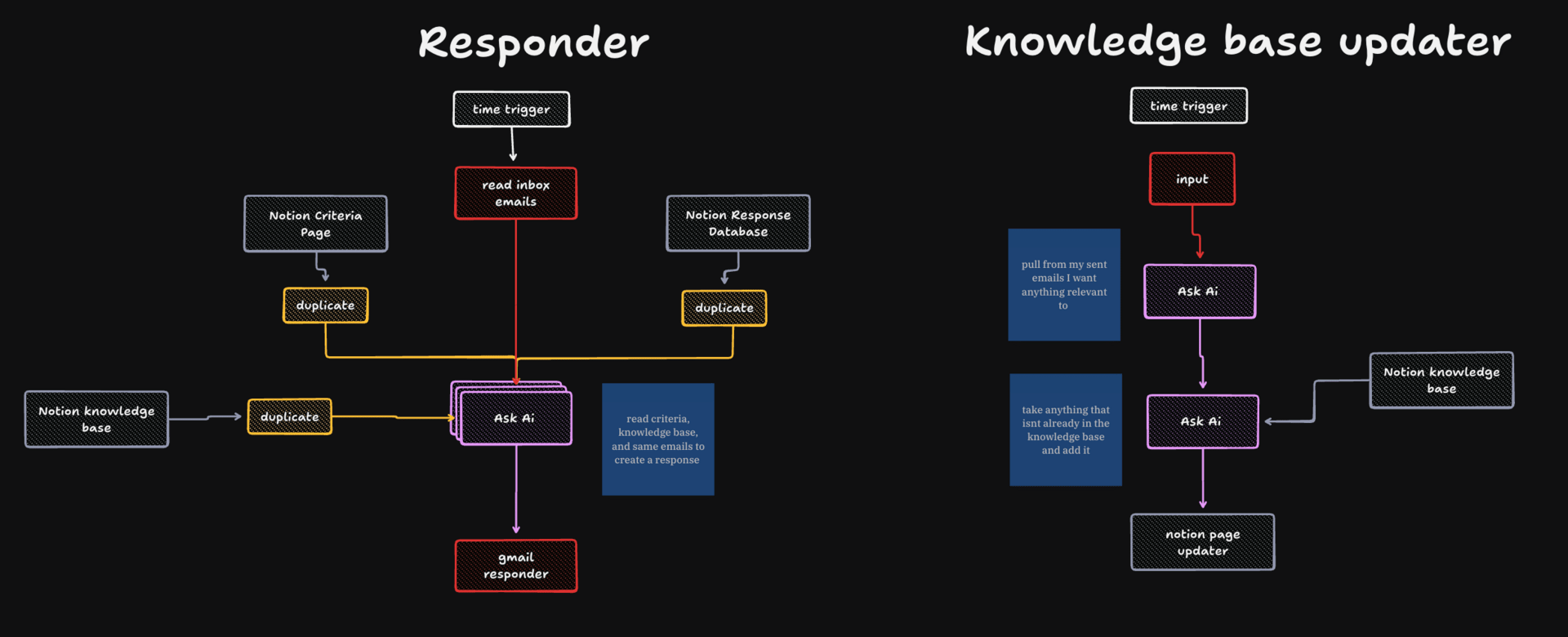
Canva: the missing piece nobody talks about
I know I said just Claude, Notion, and Gumloop. But Canva is a great way to pull everything together. Connect the flow of the tools easily.
Everyone focuses on the technical connections between tools, but here's what really makes this work: you need to see your entire operation on one screen.
I use Canva to create visual maps of how my business actually flows. Where do leads come from? What happens after someone signs up? How do projects move from start to finish? What gets automated and what still needs my hands-on attention?
It’s not just pretty documentation, it's diagnostic. When I can see the whole system laid out visually, redundant steps jump out. Opportunities for automation practically highlight themselves.
Plus, when I need to explain my process to someone else (or remember it myself six months later), having everything mapped out visually saves hours of confusion.
Building intelligence that compounds
Here's where this gets really interesting. As your business runs, it generates data.
Customer preferences.
Project patterns that work.
Market trends you're tracking.
Successful email subject lines.
Most of this intelligence gets lost in the day-to-day chaos.
But when everything flows through your Notion-Gumloop setup, this intelligence gets captured automatically.
Email responses that get positive replies get tagged as effective. Customer preferences get logged and referenced in future interactions. Market research gets organized and becomes searchable.
Your automation system doesn't just save you time, it makes you smarter.
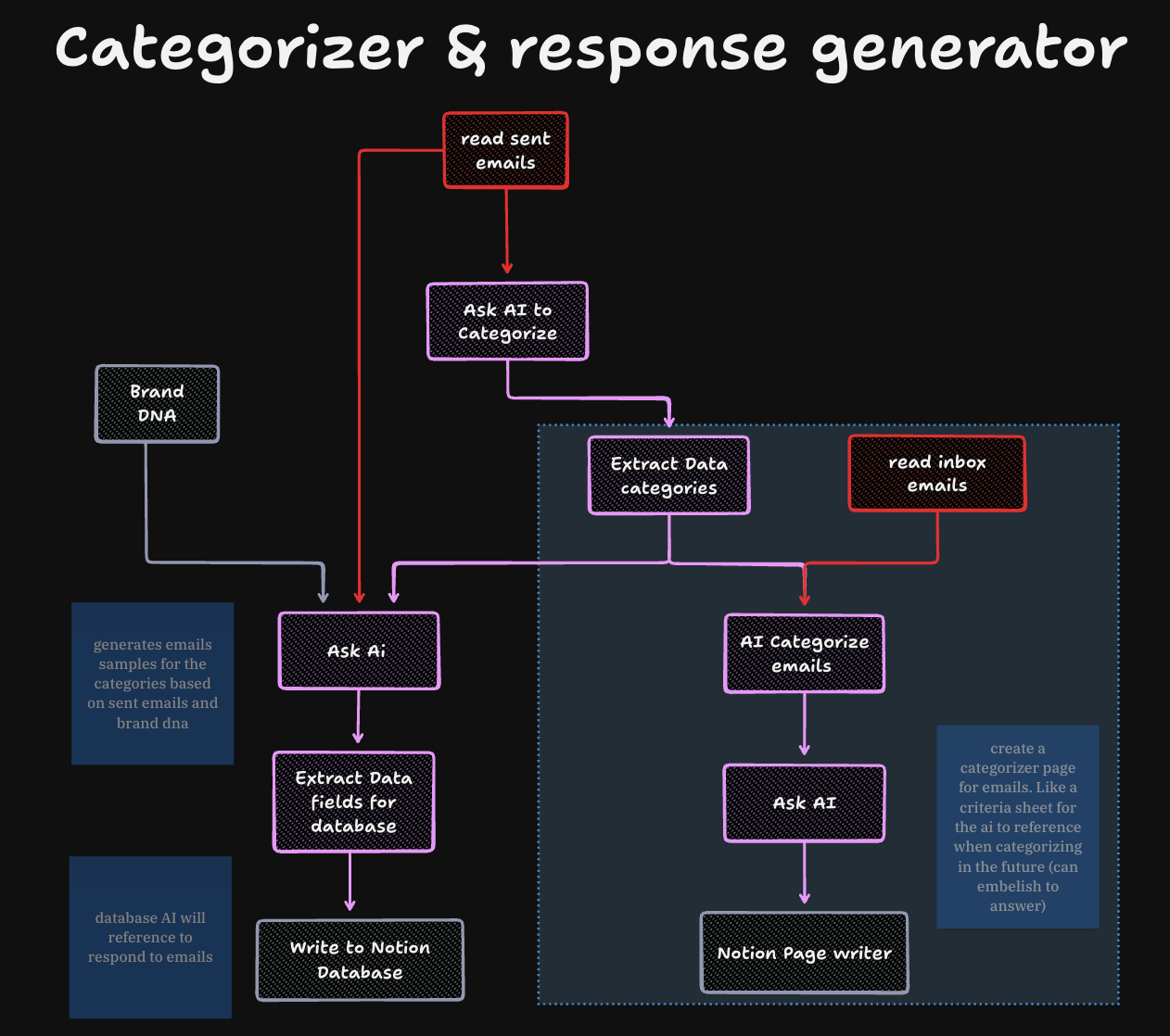
The lead magnet that builds itself
I'm currently building something that shows how powerful this approach can be. It's a lead magnet that creates complete brand DNA reports for potential customers using Gumloop.
Someone fills out a form. Gumloop researches their industry, analyzes their current messaging, and generates a custom brand strategy report.
They get valuable insights. I get their contact information and a deep understanding of their business challenges.
But here's the clever part: all of that research gets stored in Notion, automatically organized by industry, company size, and pain points. So when I follow up with prospects, I'm not starting cold, I know exactly what challenges they face and what language resonates with their market.
Every lead interaction builds my understanding of the market.
The system gets better at generating reports and I get better at crafting targeted follow-ups.
Why this matters more than you think
This isn't really about automation tools. It's about building systems that capture and compound your business intelligence instead of letting it evaporate into forgotten email threads and scattered notes.
(I’ve been doing this for years)
Most entrepreneurs are walking databases of market knowledge, customer insights, and operational wisdom. But that knowledge only exists in their heads, making it impossible to scale or systematize.
When you start storing everything in connected systems, something interesting happens. Patterns become visible. Repetitive tasks become obvious candidates for automation. Growth opportunities reveal themselves in the data.
You stop working in your business and start building intelligence that works for your business.
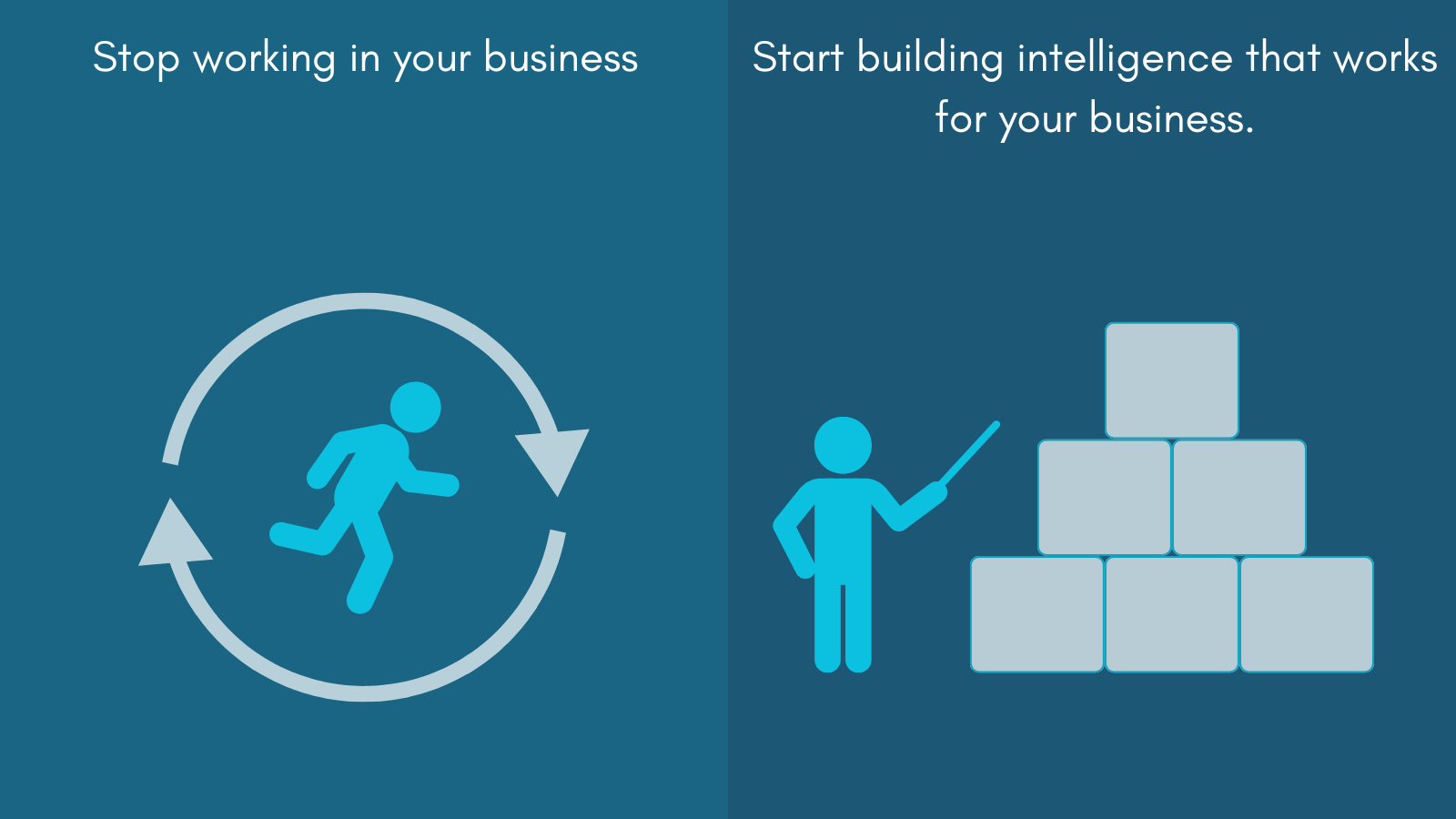
The simplicity trap
The beautiful thing about this approach is how simple it is to start. Pick one repetitive task. Map out how it currently works. Store the relevant information in Notion. Connect Gumloop to handle the routine parts.
Start with customer email responses. Or lead qualification. Or market research compilation. Pick the thing that's eating up your most valuable time right now.
Don't try to automate everything at once.
Build one flow, let it prove itself, then add the next piece.
I believe most automation fails because people try to build complex systems before they understand their simple processes.
Start simple, add intelligence gradually, let the system evolve with your business.
What becomes possible
Once you have this foundation in place, business challenges start looking different. Instead of "how do I find time to research competitors," it becomes "how do I set up a weekly automation that tracks competitor content and organizes insights by topic."
Instead of "I need to hire someone to handle customer inquiries," it becomes "how do I teach my automation system to handle 80% of these responses so I can focus on the complex conversations."
The question shifts from "how do I do more" to "what intelligence can I build."
Your business becomes a learning system instead of a daily grind.
This is still early days for me with this approach, but the path is clear.
Every day the system gets a little smarter, handles a little more, frees up a little more space for the work that actually requires human creativity and judgment.
That's the future worth building toward.

I'm documenting this journey as I build it. If you're experimenting with business automation or have questions about this approach, I'd love to hear what you're discovering. The best insights come from comparing notes with other people solving similar problems.
Thanks for reading,
James
PS: I’ll finish up these flows next week and put the link in next week’s newsletter. As I transition fully to my new business I hope to have more flows shared each week.
Coming Soon: Brand DNA creator I’m still tweaking. I’ll write about this in the next couple weeks
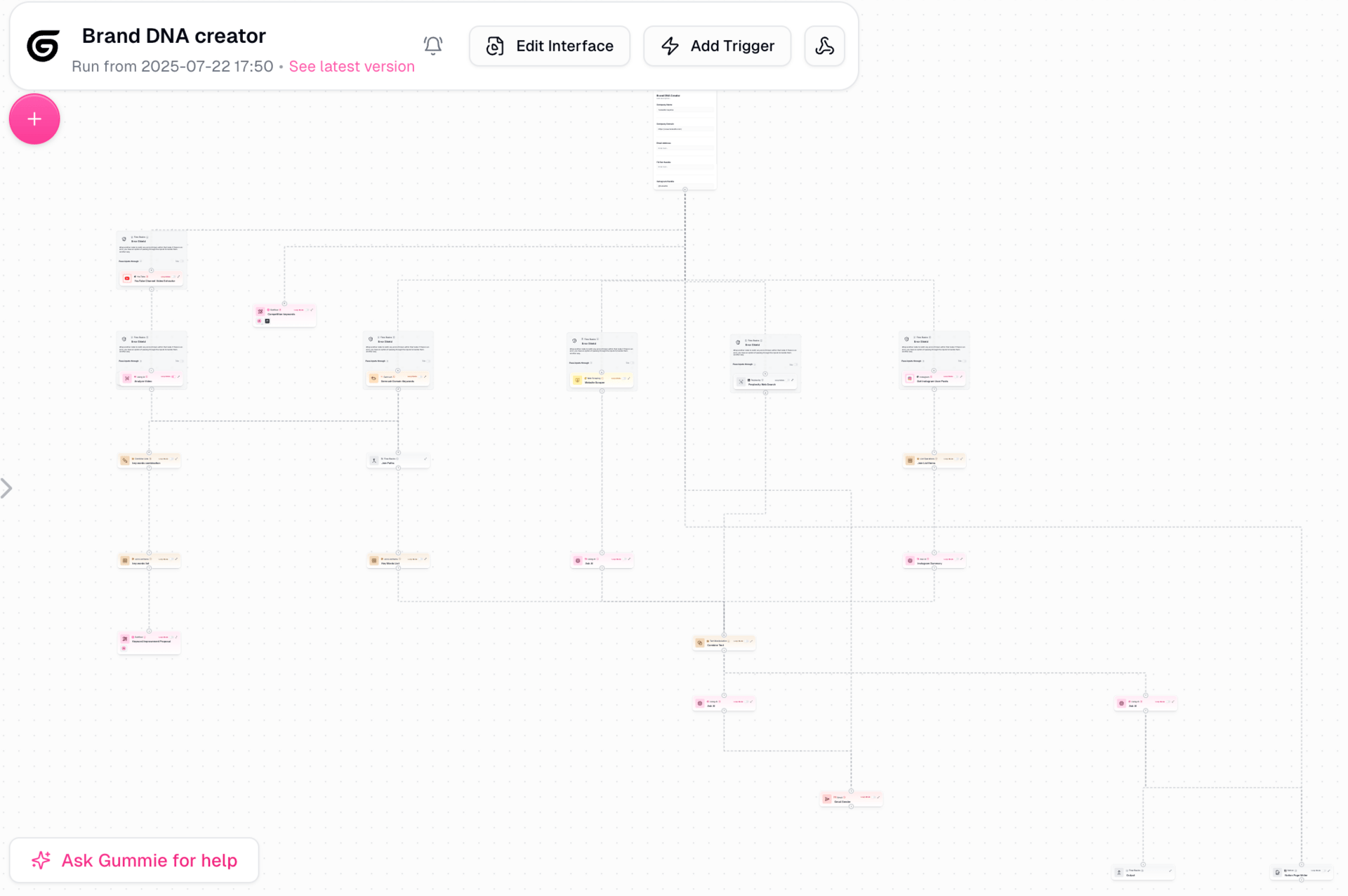
Also, a Brand DNA creator I’m still tweaking
This will help you organize your mind and bring calm to your business, check it out.

Reply